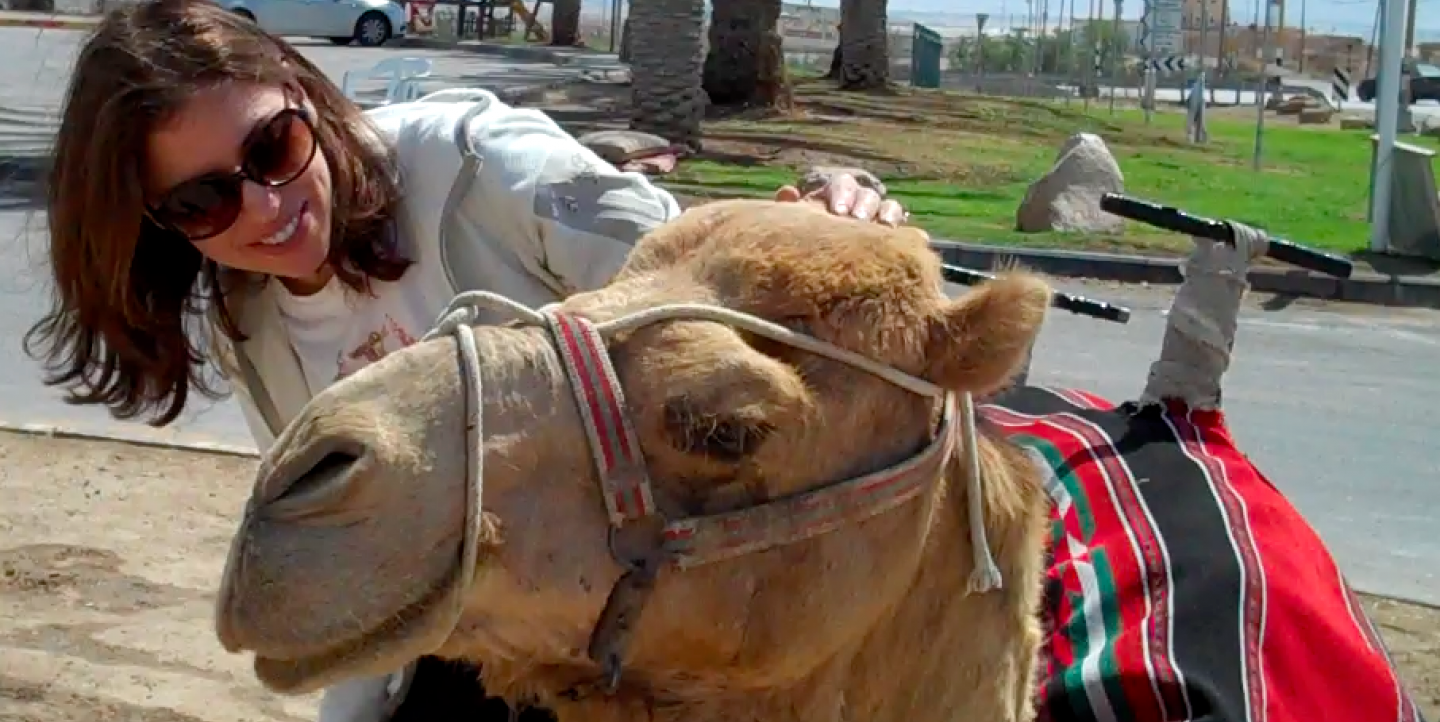After 20 years as a journalist, Cindy E. Rodríguez wanted a new challenge. Rodríguez found it as an International Reporting Fellow.
As one of eight journalists who participated in The International Center for Journalists (ICFJ) International Reporting Fellowship program, she headed to Israel.
The ICFJ Fellowship, created to provide minority journalists working in the United States the opportunity to report from abroad, is currently accepting applications for 2012.
Last year, Rodríguez reported from Israel for three weeks on the struggles of gay Orthodox Jews; Orthodox Judaism prohibits homosexuality. Her story and video on an Orthodox Rabbi helping gay men marry lesbians were published on Time.com.
How did you identify a reporting topic?
CR: The reason I was interested in this topic goes back to the general issue of how people are marginalized in society and especially in the context of religion. I wrote my Master’s thesis on this subject and had just finished at Columbia University [Graduate School of Journalism] in 2010. So, this topic was still fresh in my mind and something I wanted to delve into a little bit more.
What was it like reporting overseas as a freelancer?
CR: I didn’t have an editor to crack the whip and just bounce ideas off of and to frame ideas. So, I relied on some friends, but they’re not getting paid and there’s only so much time you can take from them. So, that was tough. I didn’t have someone to talk to help develop the story.
What was your back-up plan?
CR: I had this pie-in-the-sky idea that was my plan A and I was going to go at it full force and try to get it. But I also knew that it may not materialize, so I had to have a plan B and plan C. I had other story ideas that if the first one didn’t pan out; I was hoping to find Orthodox Jewish gay men willing to go on camera and talk about how difficult it was for them. But people are so fearful of coming out of the closet that in the short time I was there I wasn’t going to find that. So, that was my plan A. My plan B was the story that I ended up doing. But I have two more stories in me that I want to do, but it’s just a matter of finding the time.
How did you pitch media outlets?
CR: I actually knew somebody who works for [Time] regularly as a freelancer and [he] said, ‘Yes, you can use my name.’ But that editor didn’t even get my email. So when I didn’t hear back from him, I thought he wasn’t interested. I thought, well, let me try again and the [editor] said ‘Wow. I didn’t see your previous email. This sounds interesting. Let’s talk about it.’ I probably sent 20 queries. I had to research [media] companies and see if they had done anything on this topic and who was more likely to run this kind of story and figure out whom to pitch it to. It took a while. Every day I would wake up and check my email to see who had responded. I made phone calls as well. Each day it seemed like an eternity. I felt like 'Oh no. What if no one wants to publish this?'
On gaining more digital media experience:
CR: I wanted to stretch myself not just in terms of topic, but also as a journalist who is embracing digital media...I had done a few video pieces while working on my degree at Columbia, but it wasn’t like I had been a video journalist for a number of years. That made it more complicated because I didn’t get enough b-roll…You need options when you're editing. Because of that, doing my video was very tricky. [There] are very few [news websites] that run these videos...That in itself makes it difficult. Time.com was interested in the video and they looked at what I had. They said you have great interviews, but you need more b-roll. So, I had to scramble to do that. It changed the kind of pitch...
What advice do you have for U.S.-based journalists considering applying to ICFJ’s International Reporting Fellowship or pursuing foreign reporting opportunities?
CR: Have a clear perspective on the story and have read enough that you can propose a story that looks at societal impact and how Americans would be interested in the topic…Whatever your topic is and whatever your story idea is, it's going to change. It’s just the nature of it. You’re going to find when you get there things are a little bit different or you find something that's more interesting and you want to go in a different direction and that's fine...It's important to tell stories that not just deliver the news, but help to put things in perspective and that inform people in the U. S. and have some resonance.

